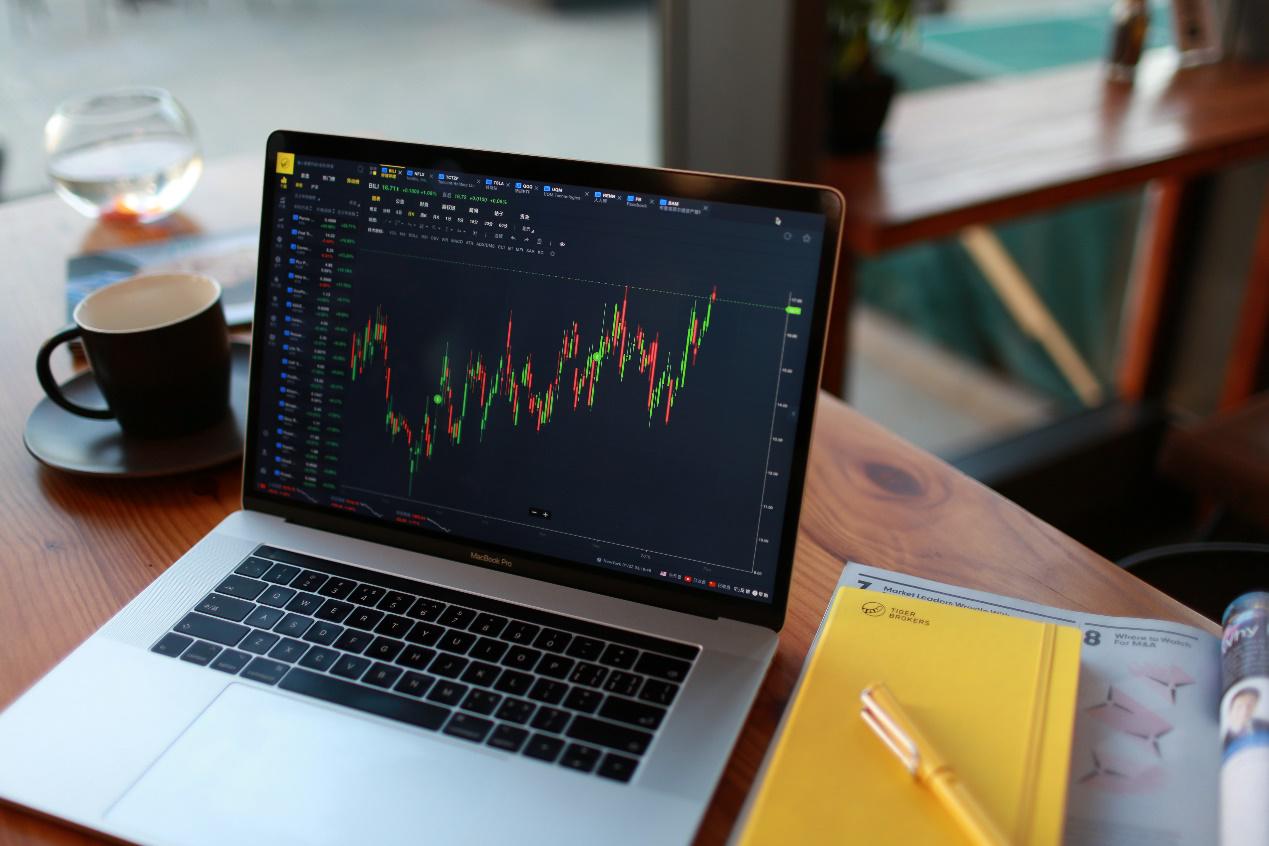New to online trading? Choosing an online brokerage platform is a lot like picking a travel companion. The right one will support you through market ups and downs, making your journey smoother and more rewarding. The wrong one? It could slow you down or even lead you astray.
Choosing the right platform is crucial for optimizing your financial outcomes, as it can greatly impact your trading experience and costs. This guide will walk you through the key considerations of selecting an online trading platform that fits your needs.
What is an online brokerage account?
An online brokerage account enables individuals to trade financial assets—such as stocks, bonds, and ETFs—digitally. These stock trading platforms eliminate the need for traditional brokers, giving investors direct access to the markets at their convenience.
Through an online trading platform, users can analyze real-time data, monitor trends, and execute trades via desktop or mobile devices. Fee structures and toolkits vary across platforms, but most prioritize user-friendly interfaces for broad accessibility.
How to choose an online brokerage platform
When choosing an online brokerage platform, it is essential to consider your trading goals and priorities. Here are five key factors to evaluate:
1. Trading styles
Your trading style determines the type of features you’ll need. For example:
Active traders might prioritize fast execution speeds, advanced charting tools, and lower transaction fees.
Long-term investors may benefit from platforms offering robust research tools, portfolio tracking, and low maintenance fees.
Understanding whether you plan to trade frequently or invest for the long term is crucial in narrowing down your options.
2. Account types
Understanding account types is crucial when choosing an online trading platform. Tiger Trade offers two main account types in Hong Kong:
🔹 Cash Account
A basic account where you trade using only your deposited funds. It’s ideal for beginners and low-risk investors focusing on long-term investing or simple stock trading.
🔹 Margin Account[1]
Allows borrowing funds for leveraged trading, making it suitable for experienced traders and active investors looking to maximize capital usage through short-term trading or hedging strategies. Additionally, margin accounts allow trading of derivatives such as options and futures, which are not available with a cash account.
Account Comparison
Account Type | Purpose | Key Features |
Cash Account | Low-risk investing | Trade with own funds, no leverage, must wait for funds to settle |
Margin Account | Active trading, leverage | Borrow funds to trade, higher risk, possible interest costs |
Which to choose?
Cash Account is safer and better suited for long-term investing.
Margin Account provides flexibility and leverage but requires careful risk management.
Make sure the platform you choose provides the type of account that aligns with your financial goals.
3. Available markets
When selecting an online brokerage platform, it's crucial to ensure that it provides access to the markets you intend to trade. If you’re looking to buy US stocks, ensure the platform provides access to the U.S. markets. Some platforms also support trading in international stocks, cryptocurrencies, commodities, and forex. Check the availability of the markets you wish to trade in.
4. Costs and fees
Fees can eat into your profits, so comparing costs across platforms is vital. Common fees include:
Trading commissions: Some platforms offer commission-free trading for stocks and ETFs.
Account maintenance fees: Some platforms charge fees for inactivity or account upkeep.
Margin rates: If you’re using leverage, consider the cost of borrowing.
Deposit and Withdrawal Fees:
Deposits: Tiger Trade does not charge any deposit fees. However, banks may charge fees depending on the currency and bank policies:
HKD and CNH: Most banks do not charge fees, but some may, so it's best to confirm with your remitting bank.
USD: The receiving bank does not charge fees, but the sending bank may.
Withdrawals:
FPS (Fast Payment System): Free of charge.
Other Payment Methods: A fee of approximately HKD 55 per transaction applies (subject to Tiger Trade's policies; fees may vary for other brokers).
Currency Conversion Fees: Tiger Trade supports USD, HKD, and CNY exchanges with real-time conversion rates on the app. The final exchange rate may differ slightly from the rate displayed at the time of order due to market fluctuations.
Always choose a platform with transparent pricing and minimal hidden fees. Be sure to check both the fees for deposits/withdrawals and the frequency of any charges (e.g., per transaction or monthly).
5. Check for pre-market & after-hours trading[2]
US stock markets operate on a fixed schedule, but trading opportunities extend beyond regular hours. Understanding these trading periods is essential for investors who want to plan their trades effectively.
Trading Session | Eastern Time (ET) | Hong Kong Time (HKT) |
Regular Trading Hours | 9:30 AM – 4:00 PM | 10:30 PM – 5:00 AM (DST: 9:30 PM – 4:00 AM) |
Pre-market Trading | 4:00 AM – 9:30 AM | 5:00 PM – 10:30 PM |
After-hours Trading | 4:00 PM – 8:00 PM | 5:00 AM – 9:00 AM |
Other Considerations:
No weekend trading: US stock markets are closed on Saturdays and Sundays.
Futures trading: Certain products, like S&P 500 and Nasdaq futures, may trade during parts of the weekend.
Holiday closures: Markets close or have shortened hours on specific holidays like Christmas and Thanksgiving.
Investors should check their brokerage platform’s trading schedule to ensure access to extended hours if needed. Tiger Trade provides 24-hour trading in US stocks, five days a week, allowing you to react to market news, earnings releases, and global events in time.
Online brokerage platform: Tiger Trade
For investors seeking a reliable, feature-rich platform, Tiger Trade app stands out as an excellent choice. Here are some reasons to consider it for your online stock trading needs:
Access to US markets: Tiger Trade offers simple access to buying US stocks, making it ideal for investors looking to trade in the US market.
User-friendly interface with mobile accessibility: Its intuitive design caters to both beginners and experienced traders, providing powerful tools without overwhelming new users. Whether you prefer trading on your phone or desktop, Tiger Trade offers a smooth and consistent experience.
Low fees: Tiger Trade is known for its competitive pricing, including low trading commissions and no hidden costs.
Advanced tools: The platform provides advanced charting, real-time data, and market analysis tools to help you make informed decisions.
Security and customer support: Tiger Trade prioritizes your security with protection measures, and offers responsive customer support to address your issues or inquiries quickly.
Tiger Trade offers a comprehensive online trading solution with a balance of functionality, affordability, and ease of use.
Conclusion
Choosing the best online brokerage platform depends on your trading goals and priorities. Platforms like Tiger Trade offer a great balance of features and affordability, making them worth considering.
References
[1] https://www.investopedia.com/terms/m/marginaccount.asp
[2] https://www.investopedia.com/ask/answers/06/preaftermarket.asp
Disclaimer : Investing involves risks, and past performance does not reflect future results. Tiger Brokers makes no warranty as to the accuracy, completeness, or timeliness of the information, and none of this constitutes any investment advice or opinion. Screenshots are provided for illustrative purposes only. Before investing, please consider your own risk tolerance and refer to the relevant risk disclosures for more details.




